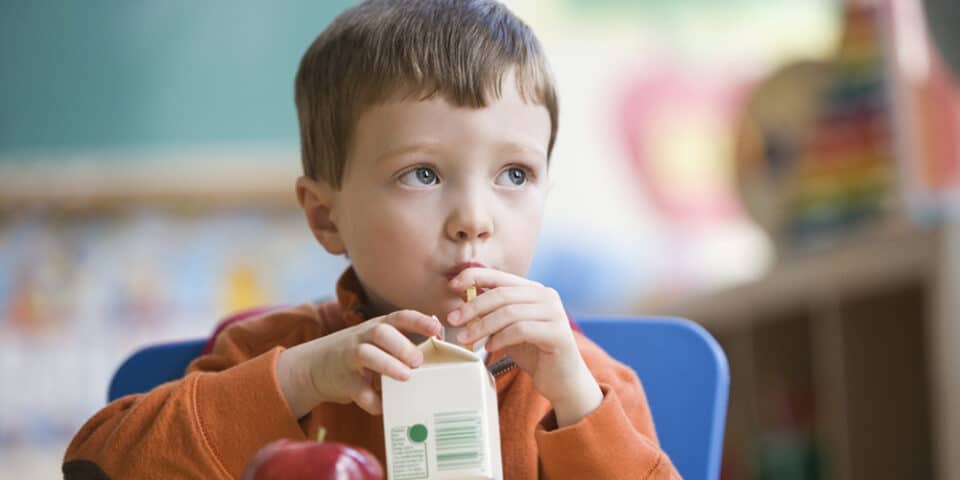Sending a child with food allergies to school
If your child has a severe food allergy, the thought of sending them off to school can be nerve wracking. Family medicine physician Brandon Hecht, DO, explained what precautions parents need to take to protect their child with food allergies at school.
How common are food allergies in children?
According to the Centers for Disease Control and Prevention, food allergies affect about 8% of children in the U.S. – that’s 1 in 13 children or about two students per classroom.
Food allergies occur when the body has specific immune response to certain foods. Sometimes this response can be life-threatening, causing anaphylaxis. Foods that account for the most serious allergic reactions include milk, eggs, fish, shellfish, wheat, soy, peanuts and tree nuts.
How can you protect your child at school if they have a severe food allergy?
“This is so important and often anxiety inducing for many parents,” Dr. Hecht said. “But schools are prepared to take precautions and make special meal considerations for children.”
The first step is obtaining forms that need to be filled out by your child’s doctor so they can inform the school of what protections need to be put in place. These forms are usually available on the school district’s website.
If your child has an anaphylactic allergy where they have trouble breathing when they are exposed to the food, you’ll need to complete a medication form for an epinephrine auto-injector (EpiPen) or albuterol inhaler to be administered by the school nurse.
“Older children sometimes can be allowed to carry the medications with them if they’ve demonstrated an ability to administer it to themselves, and it’s not a danger for them to have the medication around other kids,” Dr. Hecht said. “There should be forms for self-administration of medications as well on the website. Just check in with your local school district.”
Can separating a child with food allergies from others cause them to feel isolated or “picked on”?
Part of keeping children with food allergies safe is by informing and educating the people who will be around them at school, but this can cause kids to worry that it will bring some unwelcome attention.
“Kids are very quick to notice how they’re viewed socially and, generally, I find that there is not a big social stigma for kids,” Dr. Hecht said. “The kids are afraid of the negative attention, but they don’t often experience it in reality at school. Most of their peers are going to be equally concerned for them and may even be better at protecting them than they are themselves when they’re aware of what they’re not allowed to eat.”
If children are nervous, they might need a little reassurance.
“Parents can remind children that their safety is worth some challenges of taking precautions,” Dr. Hecht said. “They are going to be better off with their teacher, the school nurse and others knowing about their allergies so that they can feel safe and have some peace of mind at school.”
It’s important for kids to feel safe without feeling isolated, so if parents have concerns, talk to your child’s teacher.
Get kid-friendly care
Our pediatric experts can help your kids and teens be their healthiest.
Find a Pediatric Doctor

